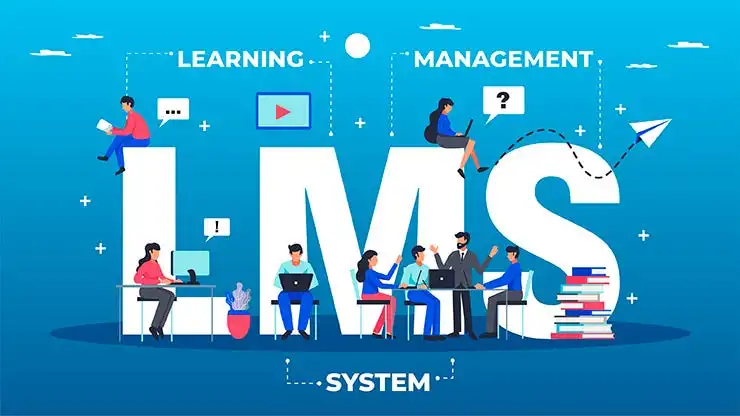To enhance the efficiency of skill development and deliver impactful, scalable training, organizations should explore the potential of a Learning Management System (LMS). If you’re considering implementing one, understanding the specific advantages an LMS offers is crucial for making an informed decision.
An LMS is a versatile software platform designed to manage, document, track, report, and deliver educational courses and training programs. However, choosing the right system requires a clear grasp of how it can transform your training processes. In this article, we’ll explore the wide-ranging benefits of using an LMS and highlight how a tailored LMS can elevate your training initiatives, delivering measurable results and additional value.
What Are the Benefits of a Learning Management System?
1. Centralized Learning Hub
An LMS serves as a single, accessible platform where all training materials, courses, and resources are stored. This eliminates the chaos of scattered documents and disparate systems. For example, a global retail chain can use an LMS to ensure all employees, from store associates to managers, access the same compliance training, reducing inconsistencies and saving time.
2. Scalability for Growing Needs
As organizations expand, so do their training requirements. An LMS scales effortlessly, accommodating new employees, departments, or regions without overhauling the system. A tech startup, for instance, can onboard hundreds of new hires across multiple locations using the same LMS, maintaining uniformity in training quality.
3. Cost Efficiency
Traditional training methods, such as in-person workshops or printed materials, can be expensive. An LMS reduces costs by digitizing content delivery, minimizing travel expenses, and automating administrative tasks. A manufacturing company could save thousands annually by replacing on-site safety training with LMS-based modules, while still meeting regulatory standards.
4. Personalized Learning Paths
A customized LMS allows organizations to tailor learning experiences to individual roles, skill levels, or goals. For example, a healthcare provider can create distinct training tracks for nurses, administrators, and technicians, ensuring relevant content and boosting engagement. Adaptive learning features can also recommend additional courses based on performance.
5. Enhanced Employee Engagement
Interactive elements like quizzes, gamification, and multimedia content make learning more engaging. A sales team, for instance, might participate in a leaderboard-driven LMS course on negotiation skills, fostering healthy competition and increasing completion rates.
6. Real-Time Tracking and Reporting
LMS platforms provide detailed analytics on learner progress, completion rates, and performance. Managers can monitor who’s completed mandatory training and identify skill gaps. For example, a financial institution can use LMS reports to ensure all employees are up-to-date on anti-money laundering regulations, mitigating compliance risks.
7. Accessibility and Flexibility
With cloud-based LMS solutions, employees can access training anytime, anywhere, using desktops, tablets, or smartphones. This is ideal for remote or hybrid teams. A logistics company with drivers on the road can deliver safety refreshers via mobile-friendly LMS modules, ensuring learning fits into busy schedules.
8. Streamlined Compliance Training
For industries with strict regulatory requirements, an LMS simplifies compliance management by automating updates and tracking completions. A pharmaceutical company, for instance, can use an LMS to deliver and document HIPAA training, ensuring audit readiness and avoiding penalties.
9. Improved Knowledge Retention
LMS platforms often incorporate spaced repetition, microlearning, and reinforcement tools to enhance retention. For example, a customer service team can complete short, daily LMS modules on handling difficult clients, reinforcing key concepts over time and improving on-the-job performance.
10. Integration with Existing Systems
A robust LMS integrates seamlessly with HR software, performance management tools, or third-party platforms like Zoom or Slack. This creates a cohesive ecosystem. A marketing agency, for example, can link its LMS to a CRM system to track how training impacts sales performance.
11. Support for Diverse Learning Formats
An LMS supports various content types, from videos and PDFs to virtual reality simulations. A construction firm might use an LMS to deliver immersive VR-based training on equipment safety, preparing workers for real-world scenarios without risk.
12. Global Reach with Localization
For multinational organizations, an LMS can deliver training in multiple languages and adapt content to cultural contexts. A tech giant with offices in Asia, Europe, and North America can use an LMS to provide localized cybersecurity training, ensuring relevance and comprehension.
13. Data-Driven Decision Making
Advanced LMS analytics empower leaders to make informed decisions about training investments. For instance, a retail company analyzing LMS data might discover that employees who complete product knowledge courses drive higher sales, prompting further investment in similar programs.
14. Employee Empowerment and Career Growth
An LMS fosters a culture of continuous learning by offering self-paced courses and certifications. Employees at a consulting firm can pursue leadership development programs through the LMS, enhancing their skills and increasing loyalty to the organization.
15. Eco-Friendly Training
By digitizing training materials, an LMS reduces the need for paper-based resources, aligning with sustainability goals. A university transitioning to an LMS for staff training can significantly cut its environmental footprint while maintaining high-quality education.
Conclusion
A Learning Management System is more than just a tool—it’s a strategic asset that transforms how organizations deliver training. From cost savings and scalability to personalized learning and compliance management, the benefits of an LMS are vast and impactful. By adopting a customized LMS, businesses can empower their workforce, streamline operations, and stay ahead in an ever-evolving landscape. Whether you’re a small startup or a global enterprise, investing in an LMS is a step toward unlocking the full potential of your team.








